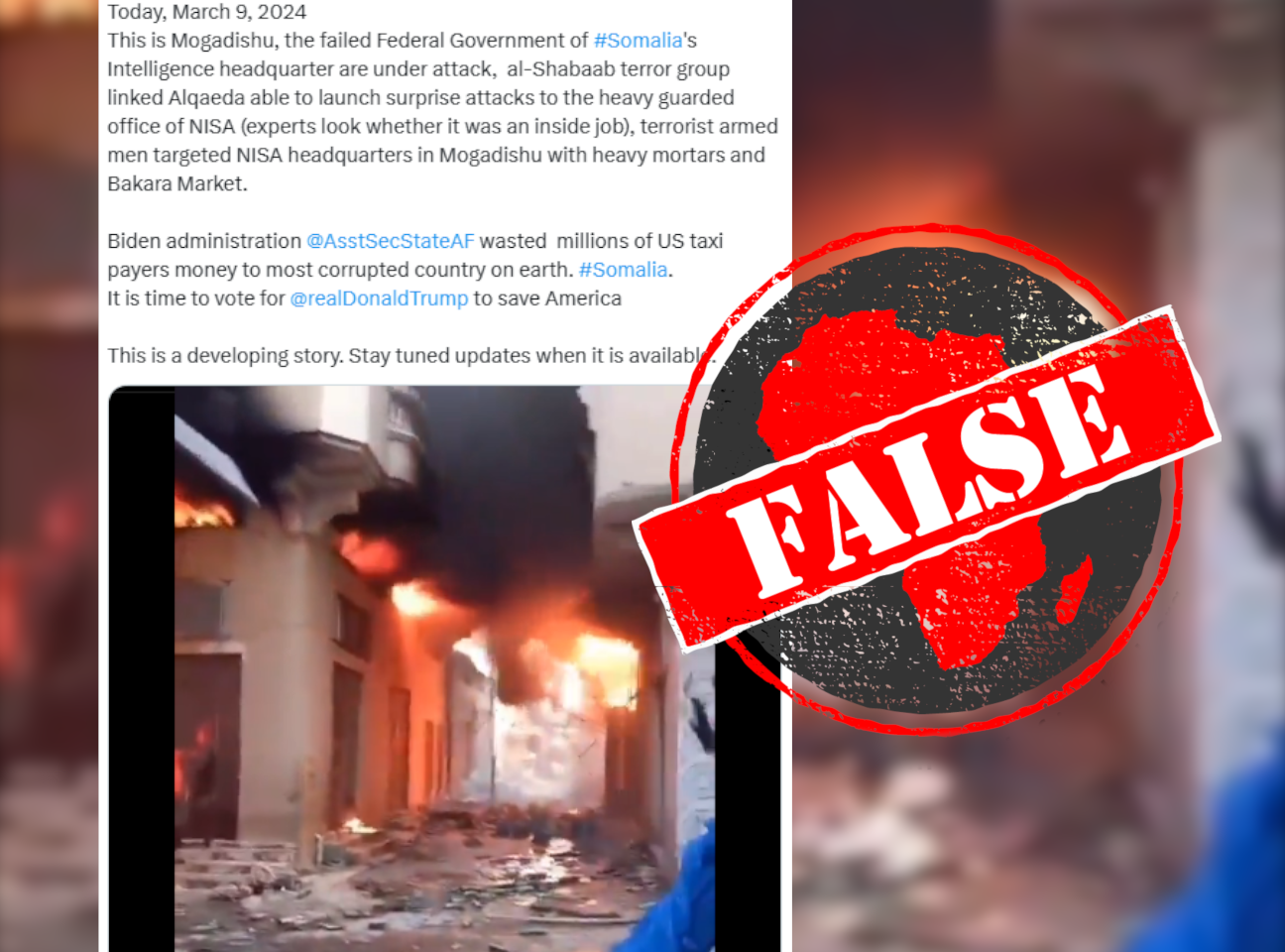IN SHORT: Despite tweets and a report claiming that the headquarters of Somalia’s National Intelligence and Security Agency was attacked by Al-Shabaab militants on 9 March 2024, there is no credible evidence for this claim.
Following a fire at the biggest market in Somalia’s capital Mogadishu in March 2024, there were claims on social media that the country’s intelligence headquarters had also been attacked by the Somali terror group Al-Shabaab.
Two tweets, both posted on the X platform on 10 March 2024, make the claim and have collectively received over 100,000 views and lots of engagement.

Background to Somali conflict
Somalia has faced political challenges since a military coup in 1969. Siad Barre ruled as a dictator until 1991, when armed conflict led to his ousting and triggered a long civil war. Clans heavily influence Somali politics, influencing social order and power structures.
Barre’s departure left a power vacuum and the Islamic Courts Union (ICU) was one of the forces that emerged to fill it, but it was not internationally recognised. The Transitional Federal Government (TFG) formed in 2004 was internationally recognised. The ICU was opposed to the transitional government and Al-Shabaab emerged as its militant wing.
Somalia adopted a new constitution in 2012, leading to the election of a president. The country has a federal system of government. The Somali president has traditionally been elected indirectly by the federal parliament, rather than directly by citizens. However, in May 2023, the Somali government introduced direct elections.
The National Intelligence and Security Agency (NISA) is Somalia’s intelligence agency, responsible for protecting national security interests. Somalia faces the security challenge of countering the terrorist group Al-Shabaab. Although Al-Shabaab’s influence has been reduced, it still carries out sporadic but deadly attacks.
But were the NISA headquarters attacked on 9 March 2024, as the tweets claimed, in what would be a major blow to national security? We checked.
No credible reports
An attack on a country's intelligence headquarters would be front-page news in the country's media and internationally. But we found no reliable results when we searched online.
A fire broke out in the Bakara market early 10 March, and it was linked to Al-Shabaab. This was widely reported in the news, including here, here, here, here, here and here. But in these reports, there was no mention of attacks on NISA headquarters despite the viral claims saying the attack happened on the same day.
We did find an article that mortar shells hit the NISA headquarters, which credited the story to this website. But a search on the website and its Facebook page also turned up no evidence of such an attack.
The website also reported about the Bakara market fire here and here but those reports made no mention of an attack on NISA headquarters.
Republish our content for free
For publishers: what to do if your post is rated false
A fact-checker has rated your Facebook or Instagram post as “false”, “altered”, “partly false” or “missing context”. This could have serious consequences. What do you do?
Click on our guide for the steps you should follow.
Publishers guideAfrica Check teams up with Facebook
Africa Check is a partner in Meta's third-party fact-checking programme to help stop the spread of false information on social media.
The content we rate as “false” will be downgraded on Facebook and Instagram. This means fewer people will see it.
You can also help identify false information on Facebook. This guide explains how.


Add new comment